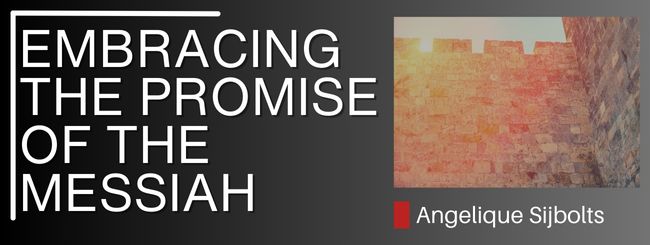בס”ד
“Every person possesses unique characteristics and quirks. Personally, I tend to see things as either black or white, struggling with the recognition of necessary shades of gray, particularly in matters of the heart. It makes me either completely happy or deeply sad, full of confidence or on the brink of despair.
Having emerged from a Christian upbringing, the anticipation and hope for the Messiah held considerable significance. In the community I inhabited, the conviction was firm that 1988 marked the year of the Messiah’s arrival. The specifics of the reasoning and calculations escape me, but the lingering disappointment persisted when that year passed without the anticipated event. However, there was no mourning; the narrative swiftly adjusted to 2000, accompanied by an elaborate calculation that purportedly rectified the previous mistake. Yet, once again, the year passed uneventfully, and disappointment settled in. Undeterred, the logical deduction followed: it wasn’t the year 2000; a 16-year miscalculation was admitted. This memory is vivid because that year held the promise of my turning 45, an age that seemed auspicious for witnessing the Messiah’s advent. Nevertheless, as observable in the world around, the earth continued its familiar revolutions. And then, I embraced the path of a Bat Noach. While the persona of the Messiah underwent a transformation from Christian to Jewish, the hope for global harmony, a world where all acknowledge and worship G-d, persisted. Judaism believes in this anticipation, articulated by Rambam:
The twelfth principle [is] the Messianic era and that is to believe and to confirm that he will come and not to think that he is late. ‘If the tarries, wait for him’ and do not give him a [set] time and do not create analyses from the verses to extrapolate the time of his coming.
Observing the world today, a conviction arises—it is time, time for the Messiah to manifest. A time to rescue Israel from the clutches of its adversaries, nations amassing with ill intentions, speaking malevolence, and seeking its demise.
A plea ascends to G-d: intervene, thwart the scoffers, and let not the nations mockingly inquire, ‘Where is their G-d?’ or assert that G-d is oblivious to their deeds against His people.
Yet, comprehension falters. Why does this conflict persist for over a month? Why is G-d’s intervention not evident, His Divine intervention seemingly absent?
In moments of profound darkness, when obscurity reaches its zenith, we find ourselves within the ‘concealment within the concealment’ (Likutey Moharan I, 56). Paradoxically, this signifies the period of utmost proximity to G-d—a time when the return to Him commences. For the darkness is akin to G-d’s own cloak, a veil that, if lifted, allows one to draw close to G-d Himself. This realization invokes trepidation. Must darkness deepen further? Must concealment shroud even more? What if the Messiah, like in times past, delays?
This fear propels me toward G-d, compelling prayers for understanding and divine intervention. Paradoxically, this fear becomes the crucible wherein my trust and belief in G-d and the imminent arrival of the Messiah strengthen. Despite the overwhelming nature of this fear, I resolve not to succumb to paralysis. Instead, I fixate on His promises—the assurance that the Messiah will come, G-d’s unwavering fidelity to His people, the promise of peace, and the anticipation of treading Jerusalem’s streets again and praying at the Western Wall.
As the nations ready themselves for the impending struggle—the battle for Jerusalem, a battle they are destined to lose—faith resounds that G-d will triumph! In the aftermath, they will stand humbled and tarnished, while His people will emerge triumphant and jubilant. Know, I share in their current anxiety and sorrow, but soon I anticipate sharing in their exultation.
By Angelique Sijbolts
Sources:
Likutey Moharan I, 56
Rambam on Mishnah Sanhedrin 10:1:29
© Copyright, all rights reserved. If you enjoyed this article, we encourage you to distribute it further.
Our blogs may contain text/quotes/references/links that include copyright material of Mechon-Mamre.org, Aish.com, Sefaria.org, Chabad.org, and/or AskNoah.org, which we use in accordance with their policies.
